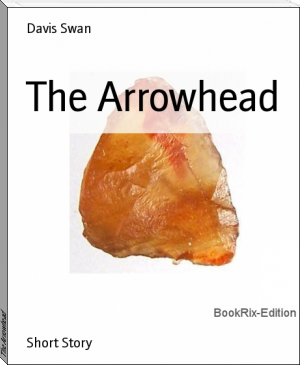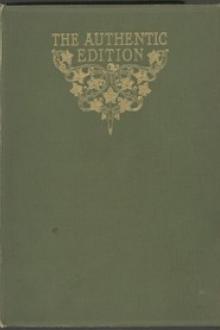The Shining Pyramid, Arthur Machen [best chinese ebook reader txt] 📗

- Author: Arthur Machen
- Performer: -
Book online «The Shining Pyramid, Arthur Machen [best chinese ebook reader txt] 📗». Author Arthur Machen
“Here,” he said, “we will lie down. I do not think there is anything yet.”
“I know the place,” said Vaughan, after a moment. “I have often been by in the daytime. The country people are afraid to come here, I believe; it is supposed to be a fairies’ castle, or something of the kind. But why on earth have we come here?”
“Speak a little lower,” said Dyson. “It might not do us any good if we are overheard.”
“Overheard here! There is not a soul within three miles of us.”
“Possibly not; indeed, I should say certainly not. But there might be a body somewhat nearer.”
“I don’t understand you in the least,” said Vaughan, whispering to humour Dyson, “but why have we come here?”
“Well, you see this hollow before us is the Bowl. I think we had better not talk even in whispers.”
They lay full length upon the turf; the rock between their faces and the Bowl, and now and again, Dyson, slouching his dark, soft hat over his forehead, put out the glint of an eye, and in a moment drew back, not daring to take a prolonged view. Again he laid an ear to the ground and listened, and the hours went by, and the darkness seemed to blacken, and the faint sigh of the wind was the only sound.
Vaughan grew impatient with this heaviness of silence, this watching for indefinite terror; for to him there was no shape or form of apprehension, and he began to think the whole vigil a dreary farce.
“How much longer is this to last?” he whispered to Dyson, and Dyson who had been holding his breath in the agony of attention put his mouth to Vaughan’s ear and said:
“Will you listen?” with pauses between each syllable, and in the voice with which the priest pronounces the awful words.
Vaughan caught the ground with his hands, and stretched forward, wondering what he was to hear. At first there was nothing, and then a low and gentle noise came very softly from the Bowl, a faint sound, almost indescribable, but as if one held the tongue against the roof of the mouth and expelled the breath. He listened eagerly and presently the noise grew louder, and became a strident and horrible hissing as if the pit beneath boiled with fervent heat, and Vaughan, unable to remain in suspense any longer, drew his cap half over his face in imitation of Dyson, and looked down to the hollow below.
It did, in truth, stir and seethe like an infernal caldron. The whole of the sides and bottom tossed and writhed with vague and restless forms that passed to and fro without the sound of feet, and gathered thick here and there and seemed to speak to one another in those tones of horrible sibilance, like the hissing of snakes, that he had heard. It was as if the sweet turf and the cleanly earth had suddenly become quickened with some foul writhing growth. Vaughan could not draw back his face, though he felt Dyson’s finger touch him, but he peered into the quaking mass and saw faintly that there were things like faces and human limbs, and yet he felt his inmost soul chill with the sure belief that no fellow soul or human thing stirred in all that tossing and hissing host. He looked aghast, choking back sobs of horror, and at length the loathsome forms gathered thickest about some vague object in the middle of the hollow, and the hissing of their speech grew more venomous, and he saw in the uncertain light the abominable limbs, vague and yet too plainly seen, writhe and intertwine, and he thought he heard, very faint, a low human moan striking through the noise of speech that was not of man. At his heart something seemed to whisper ever “the worm of corruption, the worm that dieth not,” and grotesquely the image was pictured to his imagination of a piece of putrid offal stirring through and through with bloated and horrible creeping things. The writhing of the dusky limbs continued, they seemed clustered round the dark form in the middle of the hollow, and the sweat dripped and poured off Vaughan’s forehead, and fell cold on his hand beneath his face.
Then, it seemed done in an instant, the loathsome mass melted and fell away to the sides of the Bowl, and for a moment Vaughan saw in the middle of the hollow the tossing of human arms. But a spark gleamed beneath, a fire kindled, and as the voice of a woman cried out loud in a shrill scream of utter anguish and terror, a great pyramid of flame spired up like a bursting of a pent fountain, and threw a blaze of light upon the whole mountain. In that instant Vaughan saw the myriads beneath; the things made in the form of men but stunted like children hideously deformed, the faces with the almond eyes burning with evil and unspeakable lusts; the ghastly yellow of the mass of naked flesh; and then as if by magic the place was empty, while the fire roared and crackled, and the flames shone abroad.
“You have seen the Pyramid,” said Dyson in his ear, “the Pyramid of fire.”
V The Little People“Then you recognise the thing?”
“Certainly. It is a brooch that Annie Trevor used to wear on Sundays; I remember the pattern. But where did you find it? You don’t mean to say that you have discovered the girl?”
“My dear Vaughan, I wonder you have not guessed where I found the brooch. You have not forgotten last night already?”
“Dyson,” said the other, speaking very seriously, ” I have been turning it over in my mind this morning while you have been out. I have thought about what I saw, or perhaps I should say about what I thought I saw, and the only conclusion I can come to is this, that the thing won’t bear recollection. As men live, I have lived soberly and honestly, in the fear of God, all my days, and all I can do is believe that I suffered from some monstrous delusion, from some phantasmagoria of the bewildered senses. You know we went home together in silence, not a word passed between us as to what I fancied I saw; had we not better agree to keep silence on the subject? When I took my walk in the peaceful morning sunshine, I thought all the earth seemed full of praise, and passing by that wall I noticed there were no more signs recorded, and I blotted out those that remained. The mystery is over, and we can live quietly again. I think some poison has been working for the last few weeks; I have trod on the verge of madness, but I am sane now.”
Mr. Vaughan had spoken earnestly, and bent forward in his chair and glanced at Dyson with something of entreaty.
“My dear Vaughan,” said the other, after a pause, “what’s the use of this? It is much too late to take that tone; we have gone too deep. Besides you know as well as I that there is no delusion in the case; I wish there were with all my heart. No, in justice to myself I must tell you the whole story, so far as I know it.”
“Very good,” said Vaughan with a sigh, “if you must, you must.”
“Then,” said Dyson, “we will begin with the end if you please. I found this brooch you have just identified in the place we have called the Bowl. There was a heap of grey ashes, as if a fire had been burning, indeed, the embers were still hot, and this brooch was lying on the ground, just outside the range of the flame. It must have dropped accidentally from the dress of the person who was wearing it. No, don’t interrupt me; we can pass now to the beginning, as we have had the end. Let us go back to that day you came to see me in my rooms in London. So far as I can remember, soon after you came in you mentioned, in a somewhat casual manner, that an unfortunate and mysterious incident had occurred in your part of the country; a girl named Annie Trevor had gone to see a relative, and had disappeared. I confess freely that what you said did not greatly interest me; there are so many reasons which may make it extremely convenient for a man and more especially a woman to vanish from the circle of their relations and friends. I suppose, if we were to consult the police, one would find that in London somebody disappears mysteriously every other week, and the officers would, no doubt, shrug their shoulders, and tell you that by the law of averages it could not be otherwise. So I was very culpably careless to your story, and besides, there is another reason for my lack of interest; your tale was inexplicable. You could only suggest a blackguard sailor on the tramp, but I discarded the explanation immediately. For many reasons, but chiefly because the occasional criminal, the amateur in brutal crime, is always found out, especially if he selects the country as the scene of his operations. You will remember the case of that Garcia you mentioned; he strolled into a railway station the day after the murder, his trousers covered with blood, and the works of the Dutch clock, his loot, tied in a neat parcel. So rejecting this, your only suggestion, the whole tale became, as I say, inexplicable, and, therefore, profoundly uninteresting. Yes, therefore, it is a perfectly valid conclusion. Do you ever trouble your head about problems which you know to be insoluble? Did you ever bestow much thought on the old puzzle of Achilles and the Tortoise? Of course not, because you knew it was a hopeless quest, and so when you told me the story of a country girl who had disappeared I simply placed the whole thing down in the category of the insoluble, and thought no more about the matter. I was mistaken, so it has turned out; but if you remember, you immediately passed on to an affair which interested you more intensely, because personally. I need not go over the very singular narrative of the flint signs; at first I thought it all trivial, probably some children’s game, and if not that a hoax of some sort; but your shewing me the arrowhead awoke my acute interest. Here, I saw, there was something widely removed from the commonplace, and matter of real curiosity; and as soon as I came here I set to work to find the solution, repeating to myself again and again the signs you had described. First came the sign we have agreed to call the Army; a number of serried lines of flints, all pointing in the same way. Then the lines, like the spokes of a wheel, all converging towards the figure of a Bowl, then the triangle or Pyramid, and last of all the





Comments (0)